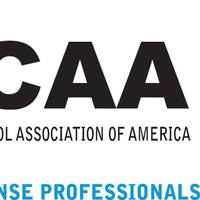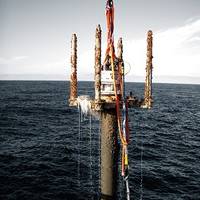PCA Announce New Booking & Service Tariff
The Panama Canal Authority (PCA) announced the following new booking and PCSOPEP tariffs for the neopanamax vessels and modifications to other pilot related tariffs, in preparation for the upcoming opening of the neopanamax locks. Elimination of the tariff for Daylight Transit requested with less than 3 days in advanced of reserved date. All requests for daylight transit, if approved, will be assessed Tariff item #1050.0247 ($30000.00). SUBSTITUTIONS BETWEEN A BOOKED VESSEL AND NON-BOOKED VESSEL. These substitutions will not incur a charge provided they are requested at least 14 days in advance of the vessel’s booking date, instead of the previous 30 day requirement.
Spill Response Discussion with SCAA President Scott Metzger

Scott Metzger has been with Clean Harbors Environmental Services for more than 22 years. He is the Senior Vice President, Emergency Services and holds an oversight role for the Clean Harbors National Strike Team that manages environmental incidents. When not deployed on an event, Scott is focused on ER preparedness, readiness, training and the strategic development of response teams. And now, as the President of the Spill Control Association of America (SCAA), he’s got even more on his plate. Couple this with the advent of the U.S.
USCG Publishes Final Rule for Nontank Vessel Response Plans
The U.S. Coast Guard announced publication of the final rule to increase pollution response preparedness for nontank vessels carrying oil in U.S. waters. The final rule establishes the content of oil discharge response plans so nontank vessel owners and operators understand how to comply with the preparation and submission requirements of the Coast Guard and Maritime Transportation Acts of 2004 and 2006. The CGMTAs amend the Federal Water Pollution Control Act, requiring owners and operators of nontank vessels to prepare and submit oil spill response plans. The final rule also updates the International Shipboard Oil Pollution Emergency Plan requirements that apply to all nontank vessels and certain tank vessels.
OIS Eases Well Decommissioning Burden

Offshore Installation Services Ltd (OIS), an Acteon company, launched a new service designed to help operators fulfill their suspended well decommissioning plans. Wellintel is a well data collection and review service that gathers and prepares the information operators require before they start a decommissioning program. OIS engineers with extensive well abandonment knowledge and detailed understanding of the entire decommissioning process will deliver the service. Operators having…
BIMCO and IBIA Electronic Bunkering Guide
BIMCO, in partnership with the International Bunker Industry Association (IBIA), has launched a new bunkering guide designed primarily for use by ships’ crew. BIMCO Asia Liaison Officer Thomas Timlen, and IBIA Chief Executive Ian Adams released the BIMCO and IBIA Bunkering Guide on October 27 to delegates in Singapore attending the 16th Singapore International Bunkering Conference. A limited number of hard copies of the electronic guide were offered to delegates, who learned how the guide will provide general information and guidance on, among other things, the expanding regulatory regime affecting the bunkering industry. Ian Adams explained to delegates…
Blank Rome Advisory on New CG Regs
The United States Coast Guard issued a notice of proposed rulemaking (NPRM) on August 31, 2009 on long-awaited new regulations concerning the following: (i) requiring owners and operators of nontank vessels to prepare and submit oil spill nontank vessel response plans (NTVRPs); (ii) updating the international Shipboard Oil Pollution Emergency Plan (SOPEP) requirements; and (iii) requiring owners and operators to submit their vessel response plan control numbers with their notice of arrival information. Comments are due on or before November 30, 2009. As explained in a previous Blank Rome advisory available at http://www.blankrome.com/index.cfm? contentID=37&itemID=82, the Coast Guard and Maritime Transportation Act of 2004 (Pub.
Proposed Rule, Non-Tank Vessel Response Plans
The U.S. Coast Guard announced the publication of a notice of proposed rulemaking designed to increase pollution response preparedness for non-tank vessels carrying oil as fuel upon U.S. waters. The proposed rule, entitled "Nontank Vessel Response Plans and Other Vessel Response Plan Requirements," would establish the content of response plans for oil discharges, helping non-tank vessel owners and operators understand how to comply with preparation and submission requirements for response plans under the Coast Guard Maritime Transportation Act of 2004. A non-tank vessel is defined as a self-propelled vessel of 400 gross tons or greater that is not a tank vessel, which operates on U.S. navigable waters carrying oil of any kind as fuel for main propulsion.
Panama Canal Boosts Emergency Preparedness
The Panama Canal Authority (ACP) is constantly working to enhance the Canal's safety and reliability, which includes emergency preparedness. On January 1, 2005, the ACP implemented new regulations to help plan for and mitigate the effect of oil spills. Called the Panama Canal Shipboard Oil Pollution Emergency Plan (PCSOPEP), its goal is to provide for the expeditious and effective reaction to an oil spill and reduce its possible impact to the Canal and the local environment. All vessels with a 400 metric ton or more of oil carrying capacity, as fuel and/or cargo, are required to submit a PCSOPEP at least 96 hours prior to arriving in Canal Waters.
FAMA Discusses Penalties of Unregistered Vessels in Texas Waters
The Texas Oil Spill Prevention and Response (OSPR) Program has circulated the April 2003 edition of its Facility and Maritime Affairs (FAMA) newsletter. This edition contains, a reminder that civil penalties will be assessed against any unregistered vessel found in Texas waters. Texas mandates that a vessel required to have either a vessel response plan (VRP) or a Shipboard Oil Pollution Emergency Plan (SOPEP) register with OSPR prior to entry into Texas waters. Recommended civil penalties for failing to register start at $500 for each violation.





